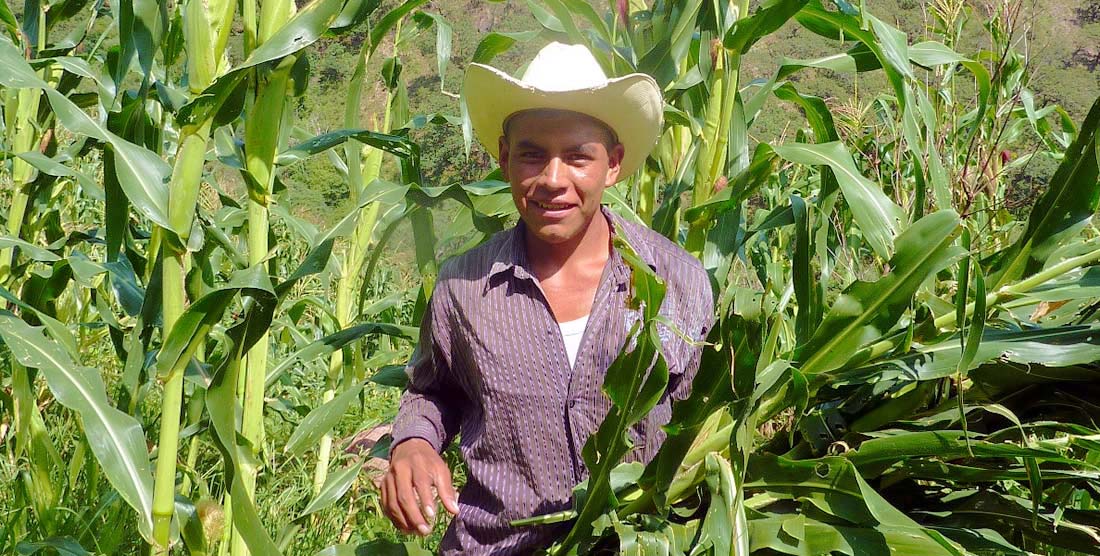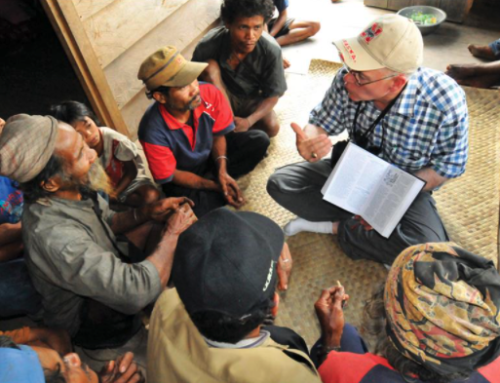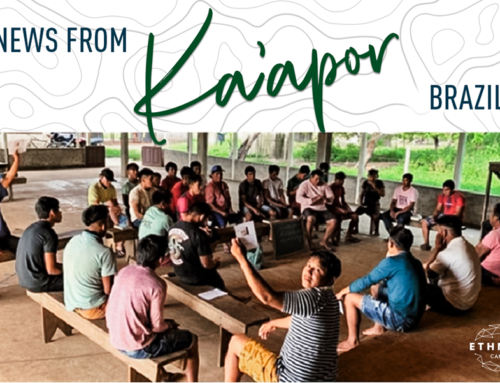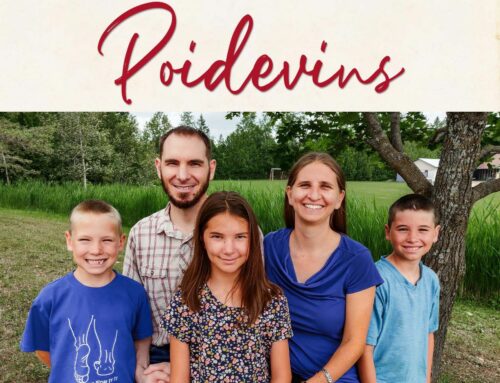Katie Moore’s Nahuatl friend said she needed someone who was qualified to talk to God.
A pile of ears of corn sat on Katie Moore’s counter.
Her translation co-worker, Andrea, commented, “Someone gifted you corn, huh? Ours aren’t ready yet because they haven’t been blessed.”
Then, Katie says, Andrea began to list for her all the dangers of eating corn that has not been blessed.
When Katie asked her who could bless the corn, Andrea replied it must be blessed by someone who knows how to talk to God.
“Apparently,” Katie observes, “there are not many of those people around.”
Since most of those people whom Andrea considered qualified live at some distance from the village, she mentioned that she might ask one of the missionaries instead.
Katie wanted to understand. She asked Andrea what these people would say when they talked to God.
“Who knows?” shrugged Andrea. “I don’t know what happens when they talk to God.”
Katie wondered what to say in a situation like this. She knew she had been talking to God since she was a little girl.
“If I tell Andrea that I can talk to God,” Katie explains, “there’s a good chance she will not understand.”
Katie explains that, because of her Nahuatl cultural beliefs, Andrea might conclude any one of a number of false things.
She could think Katie very wise or she could speculate that maybe Katie was lying. She could conclude that Katie could be hired in the future to take the “evil” out of peoples’ fields so they would not get sick. Or she could form an opinion that Katie talks to a white peoples’ god–one who couldn’t really help much with Nahuatl problems, anyway.
“And yet,” Katie insists, “I do know how to talk to God. If I am asked to bless people’s corn, should I?”
Katie struggled with the implications and conclusions. She agonized over the possible confusion. “What could be bad about publicly thanking God for the corn that He made, for the rains that He sent, for the health He can provide?” Katie asked herself.
Then she thought further. In the Nahuatl’s mind to do this would appear to be taking the evil out of corn that was regarded as having been watered by rain sent by their ancestors– and that this was motivated by food left on the ancestors’ graves.
If Katie asked a blessing on the corn, she realized, she could be viewed as a shaman. And suppose, she thought, that the people were to later get sick for some other unrelated reason? Almost certainly it could give an opportunity for Satan, the great deceiver, to lead the people to disregard the God and His message that Katie’s heart so longs to share with her Nahuatl friends.
There was no simple solution.
But Katie did the thing she knew she needed most to do. She talked to God. She asked Him for wisdom and confessed freely that she wasn’t wise enough to know the answer to the dilemma on her own.
The need for the Nahuatl people to know God is urgent, Katie shares. “The need for clarity about the true God and how He works and what He expects is pressing.”
Katie shares, “I humbly ask that when you talk to God, you ask Him to guide our team. We must rely on the Father’s wisdom as we navigate cultural quagmires … Pray that we will be given the right words through the Spirit, even when our brains feel muddled. We cannot see end results … but we serve the One Who can, so we ask Him to move us along the right path.”
There is something you can ask God for on behalf of the team of missionaries who are living among and building friendships with the Nahuatl people, in the hope of soon sharing with them the glorious news of the Gospel and how, through Jesus, the way is cleared for a talking relationship with God.
So Katie makes one last request.
“When you talk to God, will you ask Him to help us–because we desperately need it.”






